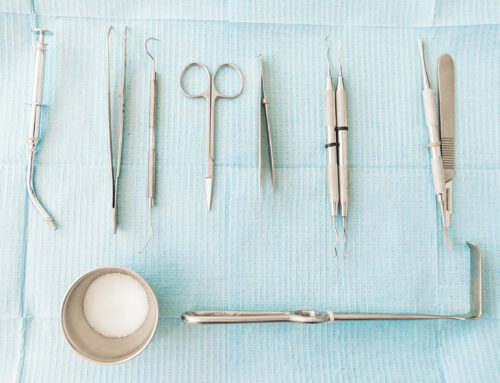Flossing is an essential element when maintaining oral hygiene. Your dentist has probably asked you about your flossing habits, and if you’re like the majority of the population, you probably don’t floss as often as you should. Without consistent and tedious care, your mouth is at risk of developing gum disease and cavities, especially if you’re not flossing daily. Be confident about your flossing habits at your next appointment with these tips and tricks. Schedule your next appointment with Dr. Goold or Dr. Evans today!
What is Flossing?
Simply brushing your teeth helps clean plaque buildup, but flossing is essential in preventing cavities between teeth. There are various types of floss, including waxed and unwaxed, flavored and unflavored, and some with additional features such as fluoride. Flossing is important in maintaining a healthy smile and preventing gum disease and tooth decay, especially when done correctly.
Follow these steps to floss correctly:
- Break off 18-24 inches of dental floss. Wind most of the floss around your middle fingers and leave about 1-2 inches of floss for your teeth.
- Next, hold the floss taut between your thumbs and index fingers.
- Place the dental floss between two teeth and gently glide the floss up and down. Rub the floss against both sides of each tooth, and avoid letting the floss touch your gums. (This can scratch or bruise your gums.)
- As the floss gets closer to your gums, curve the floss to form a C shape. This allows the floss to enter the area between your gums and teeth.
- Repeat the steps as you make your way from tooth to tooth. With each tooth, use a new, clean section of floss.
Why is Flossing Important?
Gum disease is a common concern among patients neglecting to floss regularly. Gum disease occurs when plaque builds up on teeth and hardens, causing an infection. This infection starts with swollen, red, and bleeding gums and, if left untreated, can invade the bones below your gums. Only a professional dentist or hygienist like Dr. Evans or Dr. Goold can remove and assist in treating gum disease. Flossing is essential in preventing or maintaining gum disease. But more than preventing gum disease, flossing can also help prevent bad breath and tooth loss. It can also improve immunity from other infections beyond your gums.
Who Needs to Floss?
The short answer is, everyone! Flossing is important in removing plaque and food particles from the tight spaces between your teeth that a toothbrush can’t reach. In particular, patients with braces, bridges, or prone to oral health problems should be especially consistant about brushing their teeth. Additionally, people suffering from health concerns such as diabetes, which can increase the risk of gum disease, may also need to floss more often. Dr. Goold and Dr. Evans can provide more specific instructions about how often you should floss based on your individual oral health needs.
Yes, You Do Need to Floss
Flossing is essential to oral health; you should do it more often than you think. At Gentle Dentistry, we recommend doing it at LEAST once a day, if not twice, and follow our instructions above. You should always floss carefully to ensure you don’t damage your teeth or irritate your gums. It’s important to regularly remove plaque and other food particles to prevent cavities and gum disease. Don’t forget to schedule your appointment every six months so you can show off your impeccable flossing skills! If you haven’t implemented a good flossing schedule, now is the time!




